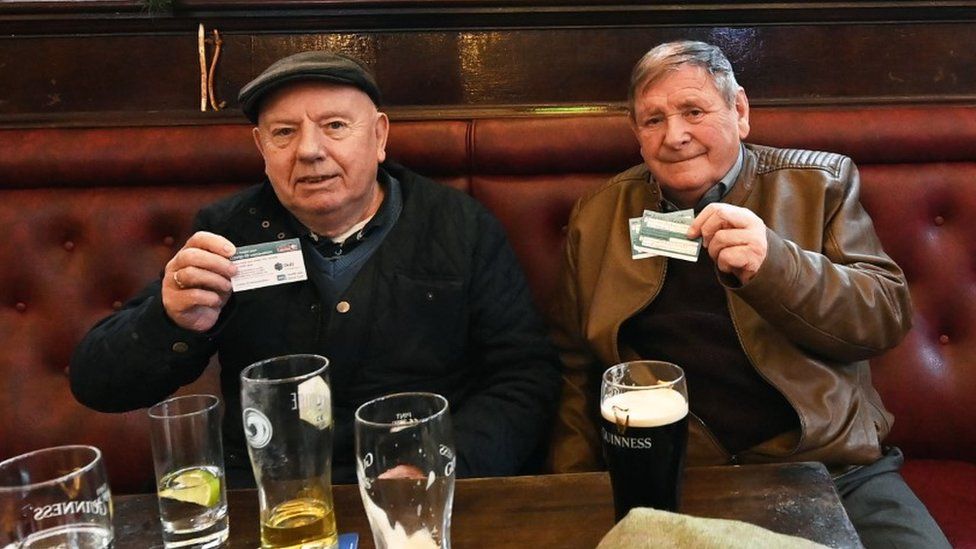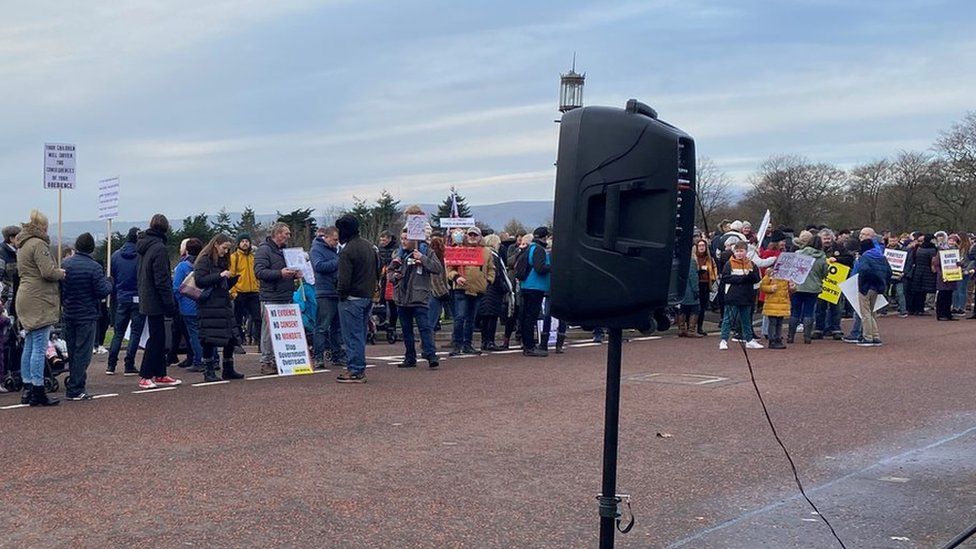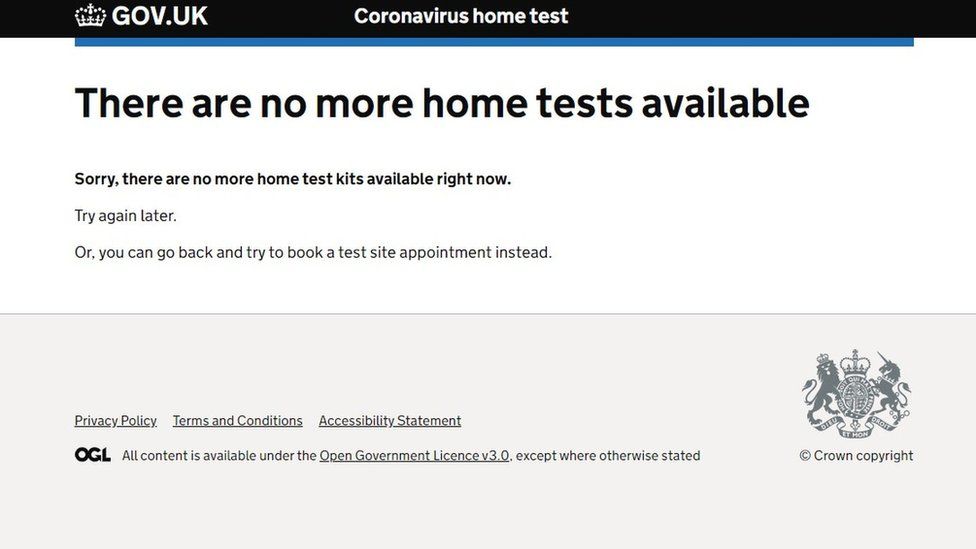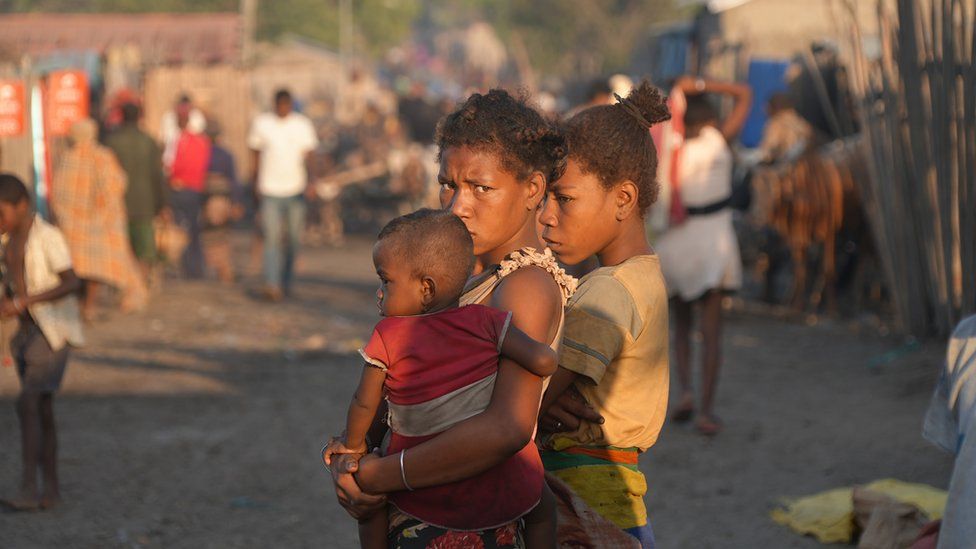Police will visit licensed premises to make sure they comply with Covid-19 passport rules, Northern Ireland’s justice minister has said.
Naomi Long said police will be “leading enforcement”.
Regulations are now legally enforceable and venues who breach them could face fines of up to £10,000.
Customers must show either proof of vaccination, a negative test or recent recovery from Covid to enter licensed premises and entertainment venues.
Ministers voted for mandatory checks last month, despite Democratic Unionist Party (DUP) opposition.
Entrance checks were introduced without enforcement on 29 November but the two-week grace period has now ended.
It comes as 10 cases of the Omicron Covid-19 variant were detected in Northern Ireland.
Speaking to BBC NI’s Good Morning Ulster programme, Mrs Long, the leader of the Alliance Party, said the introduction of Covid certification checks was “not about trying to police our way out of a crisis” but to encourage people to take Covid seriously.
“There will be proactive policing with visits to licensed premises just to ensure the right measures are being taken,” she said.
“But the focus of this will be to support those proprietors who are trying to do their best. It’s really where people are clearly not trying to comply with the advice.”
She said further questions about enforcement would be “a matter for the chief constable”.
Last week Ms Long said police would take enforcement action against people who abused staff over Covid restrictions.
 IMAGE SOURCE,PACEMAKER
IMAGE SOURCE,PACEMAKERMark Lindsay, chair of the Police Federation, said officers understood enforcement was “part of the job”.
“On some occasions it will be totally appropriate for police to be involved in enforcement,” he said.
“But there is a little bit of resentment as to why once again everything is being thrown at the police to deal with and not being seen as a wider issue”.

More than 200 protesters gathered at Stormont to express opposition to the vaccine certificates.
Ahead of an assembly debate on the issue later, a series of speakers urged assembly members (MLAs) not to support the scheme.
The debate is taking place despite the scheme already being in force.
The DUP MLA Paul Frew accepted a petition from the protesters and briefly addressed the crowd.
“We will not stop fighting until certification is removed,” he said.
Earlier, DUP MLA Paul Givan, the first minister of Northern Ireland, said evidence certification would stop the spread of Covid was lacking and such schemes were “hardening” some people’s resistance to getting vaccinated.
But Mrs Long said there was evidence that vaccine passports did help to stop the virus spreading.
‘Do anything we can’
Declan Jordan, general manager of Rosie Joe’s bar in Londonderry, told BBC Radio Foyle they had already had to turn away big groups who were unvaccinated.
“If this is what they are telling us to do to keep our business open, we will do anything we can to do it,” he said.
Owner of Belfast’s Blank and Shed restaurants Christina Taylor said the grace period had “got them into the swing of things.”
“We have a responsibility towards our guests to keep them safe,” she added.
 IMAGE SOURCE,GOV.UK
IMAGE SOURCE,GOV.UKOn Monday, the Gov.uk website, from where free NHS lateral flow tests can be ordered, said it had temporarily run out of the kits.
A message on the site apologised to those trying to order the test kits, and urged them to “try again later”.
It follows a change in rules for those identified as close contacts of a positive Covid case in England, which requires more lateral flow testing.
The Department of Health said there was sufficient stock of lateral flow tests in Northern Ireland to supply local collect sites, which include chemists.
‘Shouting no’
Health Minister Robin Swann has urged Stormont opponents of Covid passports to spell out their alternatives telling them “simply shouting no whilst failing to come forward with any genuine alternatives is not a credible position”.
In a letter to assembly members, he urged them to vote for the scheme and appealed for a “respectful” debate on the issue.
“Certification is certainly not a panacea and will need to be complemented by widespread adherence to public health advice,” he said.
There are several ways in which customers can prove their Covid-19 status:
- By downloading the CovidCertNI app on a smart phone, which shows proof of double vaccination
- By showing a paper vaccination card along with photo ID, such as a driver’s licence
- By showing proof of a negative lateral flow test (reported to the NHS within the past 48 hours) along with photo ID
- By showing proof of a positive PCR test result within the last 30-180 days, along with photo ID
Full details of the rules for businesses have been published on the Tourism NI website.
Which venues will ask to see proof?
The rules apply for access to:
- Nightclubs
- Licensed hospitality premises, including bring your own alcohol venues
- Cinemas, theatres and conference halls
- Indoor events with 500 or more attendees with some or all of the audience not normally seated
- Outdoor events with 4,000 or more attendees with some or all of the audience not normally seated
- Events where more than 10,000 people will be present regardless of whether they are seated
Covid passports are already being used in other parts of the UK and in the Republic of Ireland.
The Scottish government’s vaccine passport scheme came into effect in October and, from last week, their system was updated to include lateral flow tests results.
In Wales, NHS Covid passes have been required to enter nightclubs and large events since 11 October and last month the rules were extended to cinemas, theatres and concert halls.
People in England will soon need to show their Covid status to get into nightclubs and other large venues, subject to approval from MPs.
The Irish government made proof of Covid-19 immunity a requirement for entry into hospitality venues since the sector reopened in July.
The certification scheme has been credited with high vaccine uptake in the Republic of Ireland.






